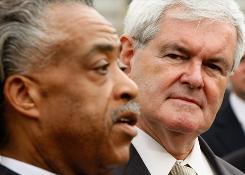“Newark Teachers Vote ‘Yes’ on Precedent-Setting Contract”
by John Mooney
NJ Spotlight
November 15, 2012
After a year of negotiations and three weeks of sometimes-brutal internal debate, Newark public school teachers and other staff ratified a historic labor agreement yesterday that will reshape pay and many rules for New Jersey’s largest school district.
Nearly 2,900 members of the Newark Teachers Union voted in the day-long balloting at the NTU’s downtown offices, a nearly unprecedented turnout, and the vote was closer than many expected. The final tally was 1,767 in favor to 1,088 against, or roughly 62 percent to 38 percent.
Union leaders who had backed the deal appeared as much relieved as celebratory when the numbers were announced, citing both the accomplishment of the pact but also the sizable numbers not on board.
Joseph Del Grosso, the NTU’s longtime president, said the agreement is only the first step in developing a workable system to fulfill it. That includes new teacher and staff evaluations and a program for performance bonuses to the most exemplary members, the controversial centerpiece of the deal.
“It’s a great vote, but it’s going to take a lot of work to put this together, that’s the tough part,” Del Grosso said.
Looking tired from a long day in which voting started at 6:30 a.m., Del Grosso said he didn’t entirely blame a third of his voting membership for casting “no” votes.
“It’s a difficult contract; it’s a leap of faith, it really is,” he said. “They took the leap, which I am grateful for. But we now have to show the members how it will work.”
Job Well Done
The plaudits came in from elsewhere, including Newark Superintendent Cami Anderson, who had staked much of her own standing on final passage of the deal.
“Congratulations to the teachers, parent coordinators, teacher’s aides, child study teams, and paraprofessionals who











 Tomorrow, on his continuing education tour, Education Secretary Arne Duncan will be joined in Philadelphia by two gentlemen who because of their obvious differences on many levels are called the Odd Couple of education. I applaud strange bedfellows – when they make things happen for kids. With this one, I’m not so sure.
Tomorrow, on his continuing education tour, Education Secretary Arne Duncan will be joined in Philadelphia by two gentlemen who because of their obvious differences on many levels are called the Odd Couple of education. I applaud strange bedfellows – when they make things happen for kids. With this one, I’m not so sure.
